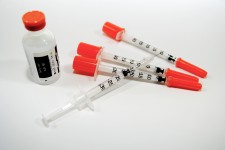Why Diabetic Wound Care Clinicians Need Specialized Training

Diabetic wounds are different from any other wounds. Diabetic wound care requires specialized training due to the propensity for diabetic wounds to heal slowly and take a turn for the worse very quickly. Clinicians working in diabetic wound care must have the necessary knowledge to recognize complications and intervene appropriately. The consequences of poorly managed diabetic wounds are dire- prolonged hospitalization, spiraling healthcare costs and amputation, to name a few.
What Makes Diabetic Wound Care So Different?
- Elevated blood glucose is the basis for everything that can and does go wrong with diabetic wounds. Diabetes damages blood vessels, which not only makes it harder to heal diabetic wounds but also makes diabetics more susceptible to developing wounds in the first place- a double whammy.
- Compromised circulation due to damaged blood vessels results in decreased blood flow, and thus decreased oxygen, being delivered to tissues that so desperately need adequate amounts of both.
- Nerve damage (diabetic neuropathy) results from uncontrolled blood glucose levels. Delicate nerves don’t do well in the presence of too much sugar. Diabetic patients often lose sensation due to diabetic neuropathy, which means they often do not notice a small blister or sore on their foot until it has morphed into a big problem. They also fail to notice that their wound is getting worse.
- Altered immunity in diabetics further complicates the picture. Diabetics’ bodies are far less efficient at fighting off infection, which both raises their risk of infection and makes it harder for their bodies to respond to infection once it has gained a foothold.
- Infection is the nemesis of diabetics. All of the aforementioned factors result in poor wound healing and a decreased ability to respond to infection. Diabetics are at risk of complications such as sepsis, gangrene and osteomyelitis, which can end with amputation as the only choice to save the affected individual’s life.
For these reasons, diabetic wound care requires specialized training. Clinicians must be able to anticipate complications, recognize when they have already occurred and intervene appropriately to prevent serious complications, including amputation and death.
If you are interested in learning more about wound care in diabetics, consider becoming a certified wound care consultant. Wound Educators offers wound care education at your own pace, in the comfort of your own home.

Infection is most often the inhibiting factor to wound healing not only for diabetic wounds but for all kinds of wounds. In our 26 years of applying the bacteriostatic wound dressing and to nurses and doctors for the covering for all kinds of chronic wounds, many of these wounds proceeded to complete healing with in days to a few weeks. Wounds ranged from deep pressure, non-healing surgical sites, to diabetic ulcers, necrotizing fasciitis, pilonidal cysts, to many others, including exposed spinal tumor of a inborn infant. This patient was protected from infection by using Elasto-Gel as the wound dressing each time the tumor was ruptured. The child went to a full childhood and lost contact at about 10 year old when the therapist retired.
The effectiveness of Elasto-Gel for preventing and eliminating infection can not be over emphasized.
The potential of cost savings and the potential to re-leave pain, prevent amputations and prolonged hospitalizations are obvious.
Yes, there many factors that affect the healing process and one of the main is nutrient supply to the wound site in the form that can support the cell growth to achieve the growth of tissue and skin and components necessary to complete healing. We also address that for a limited time which often turns out to be permanent solution. We can provide support for all of this discussion.
Do wound care educators offer dwc course?
Hi Sherry, No, we do not have an individual course to prepare people for the DWC exam. We include an entire module on Diabetic wounds, however we do not offer an individual DWC course, as the DWC certification exam does not provide an accredited certification, and we encourage accredited certifications for all of our students.